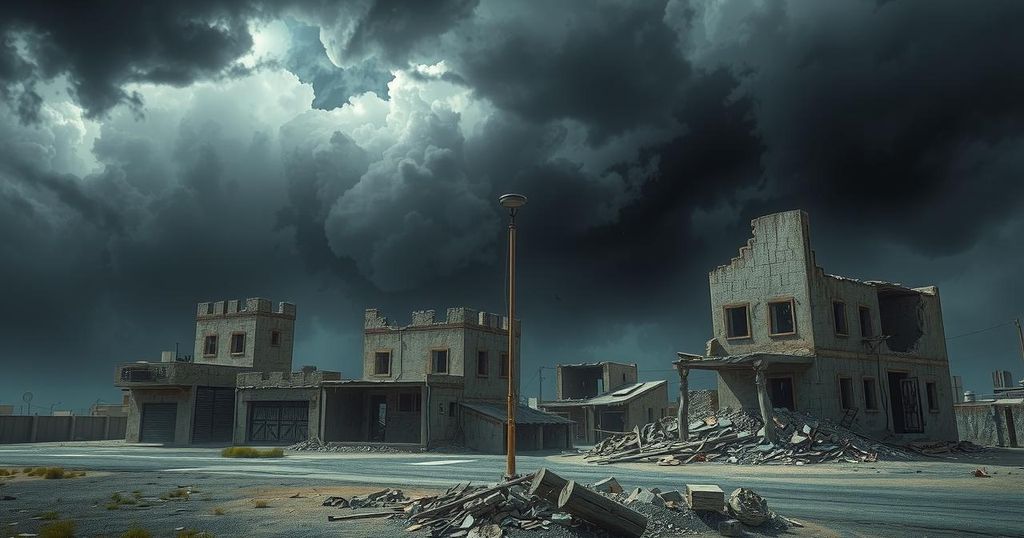Recent rocket attacks from Lebanon into Israel, followed by Israeli airstrikes in Beirut, threaten the fragile ceasefire with Hezbollah. The ceasefire, brokered after a significant war in late 2023, required both sides to withdraw and for the Lebanese army to maintain order. However, Israeli military actions continue, raising concerns about the stability of the agreement and the potential for renewed conflict.
The recent rocket launches from Lebanon into northern Israel have raised concerns about the stability of the fragile ceasefire with Hezbollah. Israeli airstrikes in Beirut marked the first significant escalation since the ceasefire was brokered by the U.S. and France, following intense conflict that began on October 8, 2023, linked to Hamas’s attacks on Israel. Residents in both Beirut and northern Israel, many of whom had only recently returned home, are increasingly anxious about renewed violence.
The ceasefire stemmed from a war that resulted in over 4,000 casualties, including both militant leaders and civilians in Lebanon. It called for an end to hostilities and stipulated withdrawal by both sides from the area south of the Litani River, allowing for increased deployment of Lebanese and U.N. troops. While the agreement aimed to prohibit Hezbollah from launching attacks on Israel, it remained ambiguous regarding the handling of Hezbollah’s armaments north of the river.
Since the ceasefire, Israel has conducted airstrikes in southern Lebanon, declaring the necessity to target Hezbollah to prevent rearmament, despite the cessation of major hostilities. Despite an initial withdrawal deadline, Israel has maintained a military presence in certain areas, prompting protests and violent confrontations with demonstrators in Lebanon’s border villages. Monitoring by the U.N. peacekeeping force indicated significant military activities persist on both sides.
Amid the recent attacks, Hezbollah denied involvement in the rocket launches, suggesting that others might be at fault. Analysts have expressed skepticism regarding Hezbollah’s denial, and it has been posited that local factions could be acting independently or with tacit approval from Hezbollah.
The situation has prompted a firm declaration from Israeli officials who assert that military responses will continue in order to maintain the safety of northern communities. Observers note that Israel’s confidence has evidently increased following U.S. support, potentially placing the ceasefire agreement at risk. Conversely, Hezbollah appears unable to engage vigorously at this juncture, indicating a shift in the regional power dynamics since late 2023, yet a continued Israeli offensive could destabilize the current equilibrium further.
In conclusion, the recent escalation between Israel and Hezbollah has underscored the precariousness of the ceasefire agreement. Despite the ceasefire aiming to reduce hostilities, ongoing military actions and civilian anxiety indicate a volatile situation. With Israel maintaining an aggressive military stance and Hezbollah lacking the capacity for sustained conflict, the balance of power is shifting. However, further Israeli aggression may still jeopardize the tenuous peace established by the ceasefire.
Original Source: www.wsls.com






